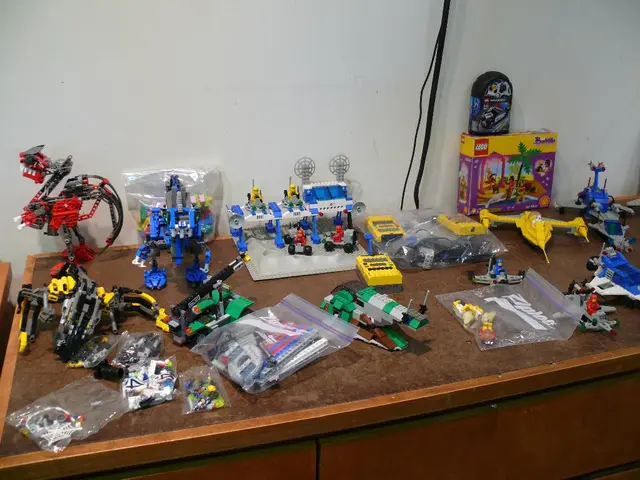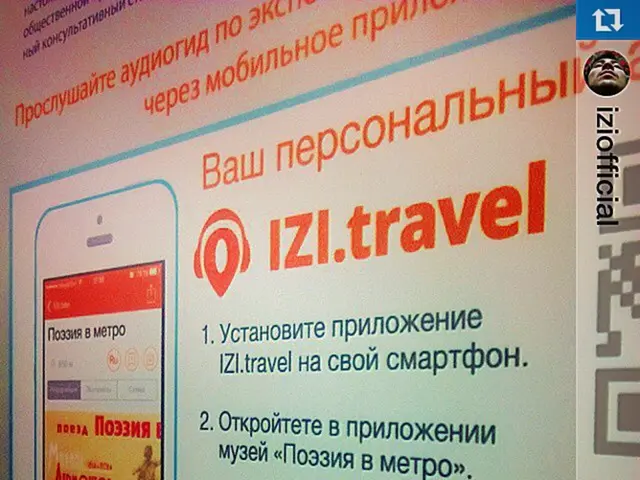Cardano and Bitcoin's Intersection in Decentralized Finance (DeFi) is Highlighted by Charles Hoskinson
In an intriguing recent interview, the man behind Cardano, Charles Hoskinson, boldly declared that his platform is poised to conquer a massive, untapped market – Bitcoin DeFi. He labeled Bitcoin as a "giant slumbering beast," suggesting its DeFi potential is four times larger than Solana's entire market cap!
It wasn't the first time Hoskinson had trumpeted this plan. In January 2025, he tweeted out his strategic vision for Cardano this year, highlighting Bitcoin DeFi as a major focus. He also mentions enhancing scalability with Ouroboros Leios and making more connections with projects like Chainlink.
DeFi, or decentralized finance, took flight initially on Ethereum and has seen impressive growth on Solana, which currently boasts a staggering $111.3 billion in total value locked (TVL), according to DefiLlama. Ethereum's DeFi TVL leads the pack at approximately $61.2 billion. But Hoskinson is convinced that the Bitcoin DeFi market is much larger and more lucrative. His mission is to uncover this goldmine on Cardano.
Let's dive intoCardano's first steps towards Bitcoin DeFi with the launch of their new protocol, Cardinal. This innovation allows Bitcoin users to take advantage of DeFi services without relying on custodians or centralized bridges. It smartly utilizes BitVMX – an off-chain execution system – and integrates Cardano's smart contracts and Bitcoin's scripting capabilities to facilitate seamless asset transfers between the two networks.
Despite the progress, Cardinal isn't quite ready for prime-time yet. The devs are diligently working on improvements, aiming to unveil version 1.0 soon. However, Cardinal's release arrives at a time when the Cardano DeFi TVL is on a downward spiral. The team remains optimistic, however, that Cardinal will entice new liquidity by presenting Bitcoin holders with fresh DeFi opportunities.
When considering Cardano's DeFi ambitions, it's worth exploring the landscape on established platforms like Ethereum and Solana. Ethereum offers a well-established, vast DeFi ecosystem that includes popular projects like Uniswap, Aave, and Compound. It's renowned for supporting complex smart contracts and enjoys a strong developer community, but high fees can sometimes be a stumbling block.
On the flip side, Solana is celebrated for its rapid transaction times and low fees, positioning it as an alluring option for DeFi apps that demand speedy settlements. Its DeFi ecosystem is quickly expanding, with well-liked protocols such as Serum and Mango Markets. Despite its growth, Solana's DeFi ecosystem still lags behind Ethereum in terms of size and diversity.
In a nutshell, Cardano's foray into Bitcoin DeFi is an innovative endeavor aimed at bridging the gap between Bitcoin and DeFi services. While it's a fledgling project, it offers a fresh, decentralized solution for Bitcoin enthusiasts. Ethereum and Solana, on the other hand, flaunt more established DeFi ecosystems, each with their distinct advantages and challenges.
- Charles Hoskinson, the founder of Cardano, asserts that his platform has the potential to tap into a mammoth, largely untouched market – Bitcoin DeFi, claiming it's four times larger than Solana's entire market cap.
- In his strategic vision for Cardano in 2025, Hoskinson emphasized Bitcoin DeFi as a critical focus, alongside enhancing scalability with Ouroboros Leios and forging ties with projects like Chainlink.
- Cardano's first step towards Bitcoin DeFi was the launch of the Cardinal protocol, enabling Bitcoin users to assimilate DeFi services without requiring custodians or centralized bridges.
- While Ethereum provides a well-established DeFi ecosystem and lowers complex smart contracts, it occasionally grapples with high fees. Meanwhile, Solana's rapid transaction times and low fees make it an appealing choice for speedy DeFi applications, although its DeFi ecosystem still lags behind Ethereum in size and diversity.




